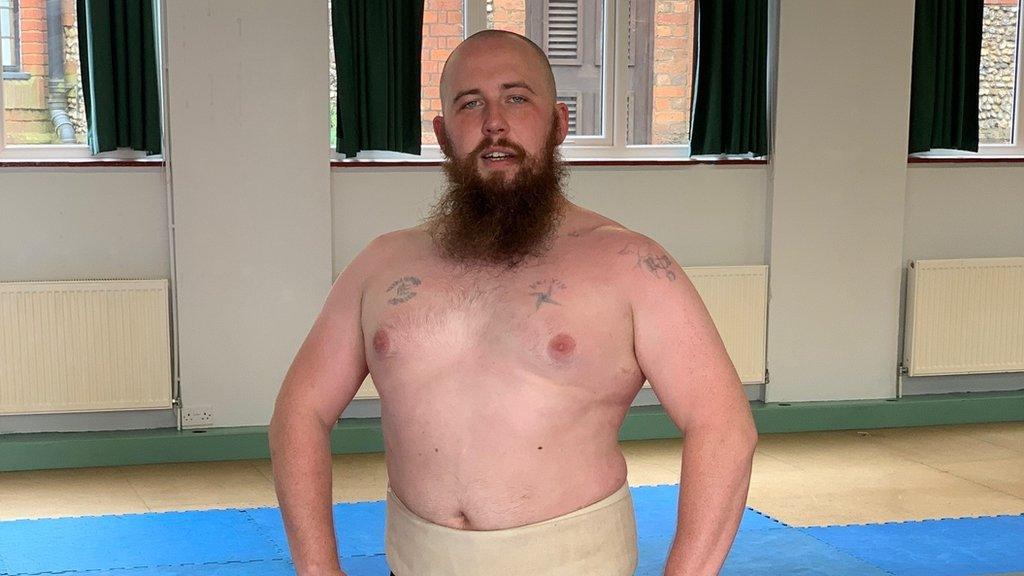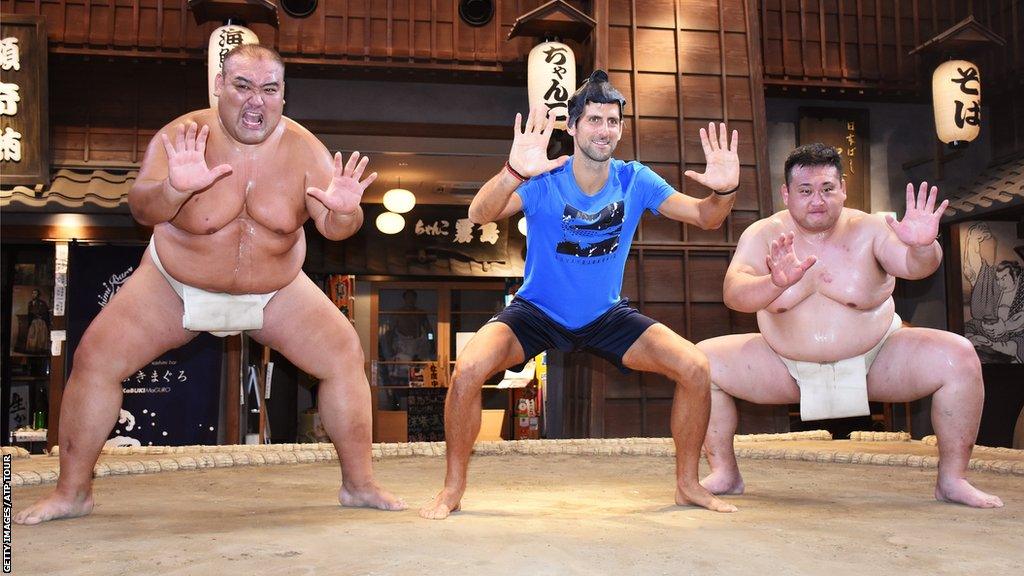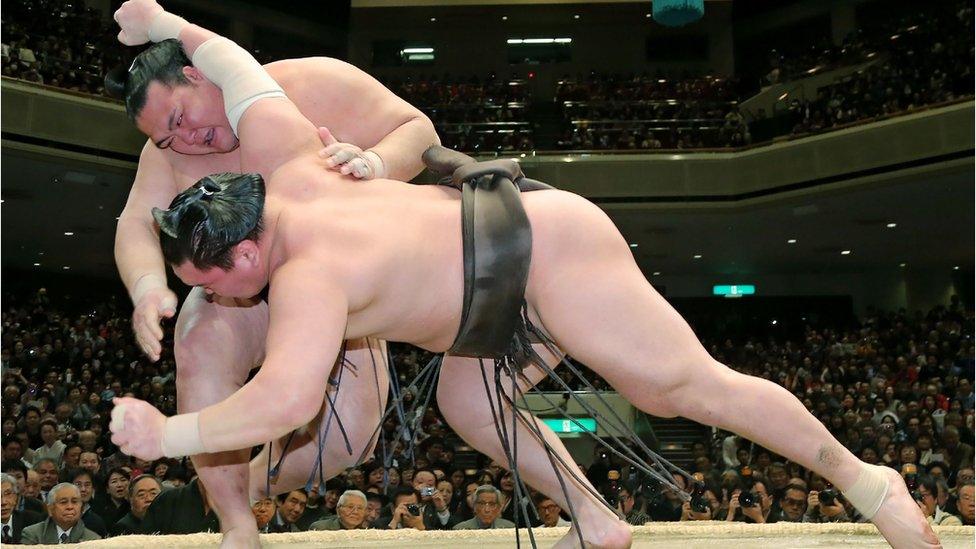Sumo wrestling: Rob O'Neill honoured to compete in sport's traditional home
- Published

Rob O'Neill previously took part in karate, kickboxing and other martial arts before turning to sumo wrestling
"It's a huge honour for us to be able to go and fight sumo in the home of sumo."
Rob O'Neill has been taking part in various martial arts for more than 20 years, but none has excited his interest to the same degree as sumo wrestling.
And having set up his own training school in Aylesbury, Bucks, he is preparing to represent Great Britain at the World Championships in Japan on Sunday.
"To be attending the World Championships, in Japan particularly, is massive," he told BBC South.
"The last time they were in Japan, Britain sent a women's team and did fantastically well and we're hoping to do equally well."
It is a sport rich on tradition - "it's their living link to the past and one of the roles they expect sumo wrestlers to play is to maintain the traditional values of Japan, particularly the traditional warrior values," explains team-mate George Young.
Sumo goes global
But sumo has now spread well beyond its original home, with 87 national bodies now part of the International Sumo Federation, 30 of them in Europe.
"It is one of the longest, continuously practised sports in the world - it's been practised in a very similar form to how it is now for about 1,500 years, so being part of that millennia-and-a-half-long tradition is really important to us," said O'Neill, who will also be joined in the team by Richard Riggs and Mandeep Singh Kundi.
"At amateur level, it's weight classed. When we go to Japan, I'll be fighting people roughly my own weight and they tend to be about 15 kilo weight brackets.
"I'm going to be in the light-heavyweight, which is people between 100 and 115 kilos. George is going to be in the heavyweight [competition], so that's anyone over 115 kilos. We competed in Switzerland last year and the heaviest person in George's category was 230 kilos.
"What you want to be is the heaviest in your category, so I want to be going out to Japan at kind of 112, 113 kilos. Weight within the categories can play quite a significant part," he continued.
'Fighting at its most basic'
The World Championships last took place in 2019, prior to the Covid pandemic, when Mongolia won the men's team competition and Russia the women's team event.
"Just before lockdown I was looking at setting something up and then everything closed down," said O'Neill.
"When everything opened up I emailed Steve [Pateman, president of the British Sumo Federation] because I know a few people who run clubs in the area for different martial arts and I said 'would you be willing to come down, do a seminar for some people, and show them what sumo's about?'
"He said 'I can do that, but I've got a session running on Sunday if you want to come up to Derby and wrestle some sumo', so I said 'yes absolutely'. That's how it started and I've been doing it ever since."
But what it is it about the sport that appeals to him so much?
"For me, from a grappling perspective, it's just the simplicity of sumo, it's fighting at its most basic - not in terms of it being easy, it's incredibly hard to do, but the win conditions for sumo are you either push the other person out or you force them to the ground," he explained.
"When you compare that to judo, [in which] there's a lot of hand fighting and positional stuff, for sumo you smash into each other and one of you wins - it's about 10 seconds, 15 seconds, it's fighting at its most pure level and I really like that. It appeals to me in a way that other grappling stuff I've done hasn't so much."
'Simple to pick up'

Tennis number one Novak Djokovic took part in a sumo warm-up during a visit to Japan in 2019
Despite the size of many sumo professionals, flexibility is also a key element of the sport.
"The sport very much favours people who are mobile in the lower body because you have to adopt that starting squat position and you want to be able to stay low while you're wrestling," said O'Neill.
"As soon as you're upright, if you've got someone pushing up into your chest or neck, you're going to go over if they're lower than you.
"Squatting in Japanese is koshiwari and we'll do dozens of repetitions every session - the professionals will do hundreds every session. It's really just working on that squat mobility to keep you in that strong position."
Although O'Neill's club is in England, the "ceremony and ritual" of sumo remain.
"All of that is important to us. We're going to keep it as pure as we can," he added.
- Published25 January 2017
